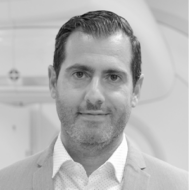Integrated AI for Health Imaging
Recent activities
- January 30, 2025: Held third meeting in Montréal
- June 15, 2024: Published a paper in the Canadian Journal of Cardiology exploring PACS-AI, an open source platform for medical AI deployment developed by the Solution Network members that is built to be responsible, vendor-agnostic and easier to validate among other benefits. Read the paper and join the Slack community for demos and collaborations.
- May 24, 2024: Held second meeting in Montréal
- January 18, 2024: Held first meeting in Montréal
Can an AI solution be implemented across data types and centres to improve clinical decision-making in a fair and responsible way?
Artificial intelligence (AI) solutions analyzing medical images and signals have achieved exponential growth and have started to be deployed in clinical practice. However, in Canada, there currently does not exist a widely deployed software for using AI on this type of data. This is because AI models are mainly restricted to commercial hardware/software (i.e. transthoracic echocardiogram with proprietary software). No readily available AI solution leverages pre-existing Canadian hospital infrastructure. Also, models can be biased against subpopulations by presenting disparate performance for these subgroups and fairness data is usually not presented to the users of the model.
This Solution Network aims to address these issues by deploying a custom software that the team built called “PACS AI”, but that has yet to be effectively implemented across Canada.
This software is distinct from current solutions:
- It performs inference using AI models on radiological exams and 12-lead electrocardiograms that are saved in the Pictures Archiving Communication System (PACS) system, which is a universal infrastructure available across all healthcare centers in Canada;
- It allows for accountability, by logging the usage of the app and storing the model predictions and the data it was used on, and;
- It encourages cooperation between physicians and AI by allowing a physician to report erroneous predictions for continuous learning. Furthermore, our solution displays AI fairness metrics for models and datasets available within it, to help the clinician understand the data it was trained on, the model performance stratified by subgroups.
This Solutions Network will work with stakeholders to implement PACS AI in participating centres, scale it and demonstrate its utility using a pilot research project. The overarching objective is to promote responsible data management practices for deployment of fair AI models in healthcare and provide guidance on the implementation of PACS AI in various settings.
Founded
2023
Supporters
CIFAR
IVADO
CIFAR Contact
Nabilah Chowdhury
Director, Pan-Canadian AI Strategy





